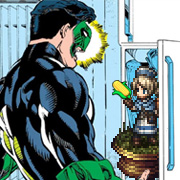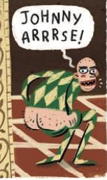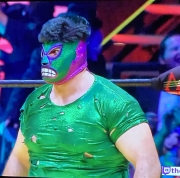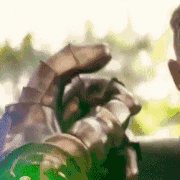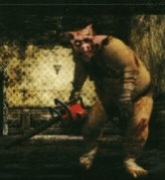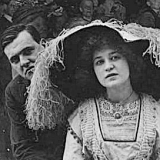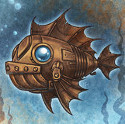|
Ohtori Akio posted:I picked up Confessions of a Mask and Thirst For Love recently. I might hit the tetralogy after those. I recently read Spring Snow, the first of the tetralogy after having read Temple of the Golden Pavilion many years ago. Its a striking and powerful novel and can't wait to sink into the next one
|
|
|
|

|
| # ? May 9, 2024 18:33 |
|
Also I just finished Earthlings by Sayaka Murata. It's light and breezy to read tho goes much harder than Convenience Store Woman. Not sure what to call these types of novels. Its like a light snack, or palete cleanser between heavier courses at a meal. Enjoyable, but not too much to chew on for better or for worse
|
|
|
|
God's Monsters, by Esther J. Hamori. This was an interesting book to me on the premise of the inside cover: diving deep into the Bible and Judeo-Christian mythology to examine the monstrous beings mentioned or described in the Bible, like the seraphim and Leviathan, and looking at the broader context of mythology and folklore in the region to place these beings as part (or not) of those traditions and looking at how they've been used in the Bible and down through the centuries. Unfortunately, I feel that the author's blatant axe to grind - she repeatedly calls YHWH of the Bible a treacherous, abusive, murderous figure in every chapter - gets in the way of her analysis. I'd hoped for a broader basis of discussion and analysis with other mythologies and the use of monsters in folklore in history, but so much of this book unfortunately reads like a screed railing against Christianity instead. Some people might be into that, I suppose.
|
|
|
|
Dradin in Love never read any of Vandermeer's fantasy so I decided to give his first Ambergris story a shot. Not a real fan of it at all. The two central mysteries or plot points were obvious from the get go so I spent most of the story wondering when we were going to get to the meat of the work but unfortunately Vandermeer spends almost the entire time either setting up or painting pictures of the background. Neither of which are all that compelling when our protagonist, antagonist, and love interest are so mannequin like. He's a good prose writer and he has interesting and compelling ideas but with this and some of the weaker sections of his Area X series I feel he has trouble synthesizing his skills together to get his ideas out in the way he sees them in his mind. I feel like I'm reading the shadow play version of the work he has in his mind's eye. If you read the work and would like something that touches on similar themes, but in a more interesting yet elusive way check out Gene Wolfe's There Are Doors.
|
|
|
|
fridge corn posted:Also I just finished Earthlings by Sayaka Murata. It's light and breezy to read tho goes much harder than Convenience Store Woman. Not sure what to call these types of novels. Its like a light snack, or palete cleanser between heavier courses at a meal. Enjoyable, but not too much to chew on for better or for worse Convenience Store Woman ruled
|
|
|
|
The Seven Husbands of Evelyn Hugo A fun, breezy read that was surprisingly poignant at the end. Cute premise— aging reclusive Hollywood star finally divulges her story, framed by the titular seven marriages, to a little known writer (the reason why she picked this writer is a good twist at the end). However, it seemed to me incredibly anachronistic regarding Hollywood/celebrity culture of the 60s. Basically, it seemed like our celebrity culture today, along with modern slang and i just could not buy it.
|
|
|
|
FantasticLand by Mike Bockoven: I was given this over in the recommendations thread, and boy was it an A+ suggestion. The premise is that a few hundred employees are stuck in an amusement park after a freak hurricane, and things go from bad to insane quickly (think Lord of the Flies but with 20-somethings). The initial chapter gives a summary of what was found in the park at the time of rescue, and it seemed beyond reality to me. But then, the story is told in a series of interviews with the survivors, and each survivor's story introduces a little bit more of the timeline of events and things that happened, and I started thinking "drat. This insane thing is on the edge of plausibility." The author does a decent job trying to give each interviewee their own unique voice and perspective on the events that happened, while continuing to drive the plot forward. Engrossing, heart-breaking and terrifying all at once. gently caress the Warthogs, though. I didn't need them in my life and am gonna have nightmares for weeks.
|
|
|
|
Spotted King of the Cracksmen by Dennis O'Flaherty on the shelf on my last bookstore visit, and it looked interesting and had a complimentary blurb from Phil Foglio, so I picked it up. I cannot remember the last time I have been so frequently tempted to throw a book across the room for sheer stupidity. So it's set in a steampunk alt-history in 1877, where President Jackson sold all of the US west of the Mississippi to ... Russia. Lincoln survived the assassination but what's left of the US is being run by his former Secretary of War, Edwin Stanton, who's trying to drag the country into war with Russia and impose a fascist surveillance state, with the help of a Lincoln impersonator -- John Wilkes Booth himself! No really! So our hero, Liam McCool, is an Irish street gangster and master thief -- although, of course, incorruptibly honest and moral. He carries not just a sword cane but a katana cane, made for him by a Japanese buddy. Said buddy also taught him the jiu-jitsu skill of knocking people out instantly by touching the right nerve clusters, which is an ancient pulp wheeze I would swear no one since the 1980s has tried to seriously use. The book opens with Liam's girlfriend being murdered and him swearing eternal vengeance, which he quickly forgets when he meets a pretty lady reporter not long after, and then he gets caught up in an underground resistance against Stanton led by, deep breath, Sam Clemens, Frederick Douglass, and Ada Lovelace. No really. There's a lot of running around and explosions and airships and Tesla gadgets and steam robots and all of it terribly pointless, and at one point Liam uses his katana to cut a five-foot-tall wolf in half with a single stroke. Did I mention that animals are growing outsized and aggressive thanks to some kind of Native American curse? Yes, Native Americans are magic. Crazy Horse shows up, and he's a shapechanger. No really. I haven't even gotten to the point where General Custer survived the Battle of the Little Bighorn and joined the Sioux. No really. There's a sequel, which I do not think I will be bothering with. Selachian fucked around with this message at 17:24 on Feb 9, 2024 |
|
|
|
Alt-history peaked with Harry Turtledove
|
|
|
|
Selachian posted:Liam McCool I'm going to read it just for this.
|
|
|
|
fridge corn posted:Alt-history peaked with Howard Waldrop
|
|
|
|
Selachian posted:Spotted King of the Cracksmen by Dennis This sounds like the worst book ever written goddamn.
|
|
|
|
It's like some kind of fever dream. I'm honestly intrigued and I might try and find an ebook of it just for shits. Steam punk Lincoln.. maybe it was born out of that vampire hunter craze.
|
|
|
|
The White Album by Joan Didion A collection of essays on topics as varied as Doris Lessing and the California water system. Absolutely loved it, what a great writer. All she does is write what she sees but at the same time it's dark and depressing and you get the feeling she thinks she is better than you and she is. Hers After Henry is next, looking forward to it.
|
|
|
|
Professionalism and Ethics in Complementary and Alternative Medicine by John Crellin and Fernando Ania Kill me.
|
|
|
|
Is that academic or bullshit making use of a faux-academic/professional title?
|
|
|
|
FPyat posted:Is that academic or bullshit making use of a faux-academic/professional title? I’ll do more of a write up when my blood pressure normalizes, but according to the book one author is a British doctor and pharmacist with a PhD in the history and philosophy of science, and was/is a named professor at a Canadian university. The other author has an HD (guess) and is the founder and president of the Homeopathic College of Canada, as well as founder, president and dean of the International Academy of Homeopathy. Out of 250 pages, the entire field of bioethics gets 5 pages starting at page 128. All of those pages are wrong.
|
|
|
|
I meant to ask whether the publisher was academic or not.
|
|
|
|
FPyat posted:I meant to ask whether the publisher was academic or not. My bad- it’s pseudo-academic alt med quackery, the Haworth Integrative Press, bought and absorbed by one of the giants some time ago- I forget which. Naturopaths probably thought it was legit.
|
|
|
|
Discendo Vox posted:it’s pseudo-academic quackery Exactly what they told Copernicus when he first proposed his “crazy ideas” all those decades ago
|
|
|
|
Selachian posted:Spotted King of the Cracksmen by Dennis O'Flaherty on the shelf on my last bookstore visit, and it looked interesting and had a complimentary blurb from Phil Foglio, so I picked it up. I cannot remember the last time I have been so frequently tempted to throw a book across the room for sheer stupidity. So it's set in a steampunk alt-history in 1877, where President Jackson sold all of the US west of the Mississippi to ... Russia. Lincoln survived the assassination but what's left of the US is being run by his former Secretary of War, Edwin Stanton, who's trying to drag the country into war with Russia and impose a fascist surveillance state, with the help of a Lincoln impersonator -- John Wilkes Booth himself! No really! Yeah I gotta be honest everything about this made me want to read it.
|
|
|
|
Timothy’s Quest (Kate Douglas Wiggin, 1890) So, I read this because the 1922 film adaptation of it is going to play at the next Maine Silent Film Festival, which I suppose you could say I’m showrunning. The story is simple enough, save for one annoyingly convoluted point. Timothy and Gay are orphans living in Minerva Court, a slum somewhere. Whoever had been caring for them has just died and the two old drunks they seem to fall to intend to break them up, sending Timothy to the state orphanage and Gay to the Lady’s Relief Society. Timmy overhears this and so, that night, they slip away to the train yard and hop aboard whichever train will take them the farthest away. In the book, they actually consult the conductor and attempt to buy a ticket before being told it’s a freight train and being allowed to ride for free. In the film, they simply find an open boxcar, read that it’s going to Pleasant River, Maine, think that sounds pleasant, and hop on. Actually, in the book, it’s never said where Pleasant River might be. For that matter, Minerva Court is never pinned down to any specific city. The film doesn’t say outright, but it heavily implies Minerva Court is in Boston and Pleasant River is most assuredly in rural Maine. (There actually is a town here called Pleasant River, up near Milo, but the film was shot in Hollis—Wiggin’s hometown.) Timmy has a sort of image in his mind of what their destination is, and he sees that image realized at White Farm, owned by one Alvida Cummins, who does not like the way Timothy looks and very much does not like his asking about Martha Cummins. This is the convoluted bit. Timmy gets the name off a tombstone in the front yard, which he, being unversed in such things, mistook for a nameplate. Now, the story doesn’t make any secret of it, so neither will I: Martha became premaritally pregnant, was sent away, died in childbirth, and when the body was returned, was refused burial in the Christian cemetery, and so now lives in the front yard. This makes perfect sense until you start adding the numbers together. Ignoring Gay, because nobody knows where she came from, Timothy is about ten years old. Martha died at age seventeen. All right, that takes us up to twenty-seven years in the past. So, Vildy is Timmy’s grandmother and is transferring the resentment and grief she still holds for her daughter onto— wait, Vildy is Marthy’s sister? But she’s sixty! The film just ignores it all and hopes the audience does, too, but the book does provide some kind of an explanation. Marthy died in childbirth, but not with Timmy, it was to some unknown and nameless girl who looked just like her. This girl also died giving birth to an illegitimate child who also looked just like her and Martha—and that’s Timmy. So, Vildy’s reason for resenting Timmy is as I said, but Timmy is really Vildy’s grandnephew. That… sure, it works, but it’s so needlessly complicated when it could have been so simple. Vildy, deep down, knows that she and all the other “good orthodox Christians” in town were wrong to turn their backs on Marthy when she most needed their help, and now Timothy’s coming has forced her to come to terms with that—to finally admit that the anger she’s held onto all these years isn’t directed at Martha—that she’s really angry at herself. And so, Alvida lets go of her grief and Timothy and Gay find a home at White Farm. The only other Wiggins book I’ve read is A Summer in a Cañon. I’ve got to say, Timothy’s Quest has a much more straight-forward plot than that meandering mess of a camping story, and both of them deal with some pretty heavy subject matter to be billed as juvenile literature.
|
|
|
|
Hello Beautiful by Ann Napolitano. This book tore my heart out and will ruin all other books for me for a while. Exquisitely written family epic about sisterhood, love, and grief. I couldn’t put it down.
|
|
|
|
Professionalism and Ethics in Complementary and Alternative Medicine by John Crellin and Fernando Ania, for reals. If I had more time I'd give this more of a writeup, but doing so would require a lot of background. In brief, this book from an "integrative press" promises a "framework for understanding and evaluating professional and ethical issues" in alternative/complementary medicine. The book consists of three very uneven parts, all terrible; at root, the authors can't accurately summarize these issues, because if they could, they wouldn't be able to defend or rationalize alt-med practices! 1. "The current scene," a sort of survey of overarching context, regulation, and challenges in ethical conduct for people in alternative and complementary medicine (so this covers both the industry of people making things like herbal supplements, and "practitioners" like Reiki or homeopaths). It's notably from a Canadian perspective. In the course of this first part, numerous common falsehoods that are used to protect and justify alt-med beliefs are deployed, e.g.: a) science is based in "reductionism" and therefore can't understand "holistic" effects, or explain associated concepts from alt-med. b) "conventional medicine" is essentially a protectionist operation by which doctors control the boundaries of acceptable practice. c) placebo is an independent, direct and magickal causal force, justifying the use of alt-med despite a lack of actual evidence (these cite to Kaptchuk, a researcher who basically leads efforts in promoting the abuse of placebo effects to promote and legitimize TCM bullshit). d) changes in scientific consensus and problems in conventional medicine reflect deeper fundamental problems that need correction in the medical "paradigm." And many more. Frequently the authors will raise a topic, list off a bunch of questions about it, engage in a several-page partial analysis (frequently developing concepts from scratch even as they demonstrate considerable research and cite multiple sources), make a bunch of unsourced "many believe" and "some say" claims, and then just sort of wander into a new topic. I could get into a lot more detail as this is a pretty dense 100 pages of material, but issues like the above occur throughout. 2. "Professionalism," a much shorter chapter, outlines the giant gaping hole at the center of the whole book: clinical and research bioethics. There's already an entire academic discipline and series of systems of regulation and practice built on how to ethically practice medicine, and the whole loving thing gets introduced more than halfway through the book, introduced as "modern bioethics," horribly misrepresented for five pages, and then largely ignored! I'm not going to try to summarize bioethics as a field here, but in brief it's a Big Deal from historical, policy and ethical standards, and it's mindboggling that the book doesn't largely focus on it, particularly its dominant form; for complex reasons, the field and all accepted practices in bioethics (both for conducting research and in the clinic) revolve around a school of thought and ethical analysis framework called "Principlism". Principlism is a sort of political compromise solution to the original political problems of creating and enforcing the field of bioethics as much as it is an actual ethics framework. In a sentence, it identified and extrapolated "midlevel principles" of ethical conduct that are common across almost all cultures and approaches to ethical reasoning, and built out a framework so that ethical "dilemmas" could be resolved in a way that would essentially respect as many of these general ethical norms as possible, all without relying on any particular ethical viewpoint as a foundation. This is not a normal approach to addressing ethics, but when you're bootstrapping a policy solution that has to be accepted by the Catholic Church, conservatives, liberals, doctors, philosophers, nurses, industry and the public all at once, it's basically the only possible option, and it was largely a success. Principlism was and is really impressive for what it was able to accomplish (despite the fact that it's got a ton of issues). It's the thousand ton gorilla of bioethics, the thing everyone else defaults to and responds to. Having a book about ethics in any kind of medicine that just sort of waves in the general direction of Principlism before setting it aside is bonkers, especially when the authors don't have any sort of other framework that they can use (and all the more so when they get a lot about it wrong, and are similarly wrong about fundamental concepts in ethics and epistemology when they address those issues). What made Principlism so effective was that it functioned as a sort of high level survey of ethical issues from so many angles, the very thing that this book fails at. The book mis-summarizes Principlism, and spends maybe four pages total on other actual concepts or systems from either bioethics or the fundamentals of ethics (basically we get consequentialism, deontology, and gestures toward virtue ethics and feminism, none of them very accurate). 3. The book ends with 12 "case histories/readings," which are sometimes fictional, sometimes factual, sometimes 1800s letters to frontier doctors. The five part "stepwise process" that the authors say they apply to these is incredibly vague (step 5 is "a consideration of how to negotiate decisions, alternative positions, or particular views"), and works completely differently in each case. The authors continue to correctly identify a lot of issues that would be relevant in the analysis, including things that are a genuine problem for alt-med practitioners (like the problem of promoting your own products as cures, or the use of fictional patient testimonials). At the same time, there are no clear conclusions, and very little in this section would be cleanly applied outside the most extreme examples; no boundary conditions are identified, so (to quote the authors complaining about another organization's ethics code,) "all are important issues, but as a potpourri of points, they are devoid of stated principles and context, and thereby, not easy to remember. A large part of what makes this book so frustrating is that in spite of its very selective and routinely false framing of issues, the authors are able to identify and summarize genuine ethical problems, and at least pay lip service to the sort of issues that would genuinely inform professional conduct and the obstacles to professionalization...in the bizarro parallel world where any part of the alt-med universe was worth professionalizing. For example, the authors discuss different definitions of "professionalism", and how the divergent schools of acupuncture make the creation of professional standards (let alone self-regulatory policing) very difficult. Reading the book made me feel like I was getting gaslit by the authors' delusions and selective reasoning. Great for the whole family 5/5 Discendo Vox fucked around with this message at 06:19 on Feb 17, 2024 |
|
|
|
Blacktop Wasteland - S. A. Crosby. I really enjoyed this one. My first time reading Crosby and love his writing. Great story, sad and heartbreaking at times, but just a great crime novel. Can't wait to read another one from him.
|
|
|
|
Machine Vendetta by Alastair Reynolds This is the third Prefect Dreyfus book, and just came out. They are prequels to the Revelation Space series and take place in the Glitter Band before the melding plague, and are about space cops enforcing mandatory direct democracy on otherwise independent ten thousand orbital habitats. For anyone who liked the first two, it's more of the same in a good way, but the premise is starting to wear somewhat thin, and it kind of feels that everyone has been hit with a bad case of stupids. For those unfamiliar with the series, Aurora Rising is definitely worth checking out for some quality sci-fi nonsense.
|
|
|
|
It was a bit disappointing when Reynolds explained that the trilogy would not cover the melding plague outbreak.
|
|
|
|
Hello Beautiful by Ann Napolitano This is the most exquisite thing I’ve read in a while. It’s a gorgeous family epic about sisterhood, love, and grief that I couldn’t put down. I wasn’t expecting to fall in love as hard as I did; this is one of those book experiences that will ruin other books for me for a while. Very tempted to reread immediately.
|
|
|
|
The Song of Achilles Not quite as good as Madeline Miller's second book, Circe. You can see where she will grow as a writer though if you read both books back to back. The pacing is not quite as good here, where its near perfect in Circe. But still a really good story about Achilles and his totally just
|
|
|
|
Finished Blindsight by Watts. Jesus, this was hard to read. It feels like it was purposefully constructed to be read once, grasped, then read through again. No way. I kind of enjoyed the way that it slowly unfurled some concepts, but others like the person with purposefully segmented personalities were just not fun to work through. The Rorschach having various well-described aberrant physical and chemical properties essentially turning out to be "well it might as well be black magic + a von neumann machine was kind of a let down. That plus the Finnish vampire, plus the cyber-afterlife poo poo felt like four too many balls in the air. All of the parts were interesting, but none of them came together in sensible ways. As such, it reminded me a lot of a Neal Stephenson work. Except it didn't end in a disappointing gunfight. Wanted something that was a little easier to chew, and drew a random from my To Read list. Landed on Remote Control by Nnedi Okorafor. So fun to read and well-written. Every element that's included is pursposeful, poetic and from a very specific voice. If blindsight was chewing peanut shells, this was a coke float. It's a kind of superhuman origin story, in an Afrofuturistic setting. I understand other works of hers share this story's universe and I'm really looking forward to reading them. Afrofuturism isn't something I've had experience with reading before, and I hope there's more as good as this. Remote Control is short, wonderfully constructed, and was a treat to read.
|
|
|
|
Breaking Free of Child Anxiety and OCD: A Scientifically Proven Program for Parents by Eli R. Lebowitz: This book had been mentioned in the Parenting thread and our daughter has some anxious tendencies, so I gave it a read. The big thing I learned is that we don't need to be worried about our daughter. Her anxiety is nowhere near the levels discussed in the examples in the book, and she's pretty good at handling her own anxiety without help when it comes up. The key message of the book is to provide acceptance (understanding that your child is dealing with anxiety which is hard) and confidence (communicating that you know your child can cope with anxiety on their own) to your child. It comes off a bit "tough love" because the ultimate strategy is to tell your child "I know this is hard, but we're not going to do special things for you to curb your anxiety, and you need to learn how to cope on your own." I'm not sure I'm in complete agreement, but if I were parents in the situations described in the book, I'm sure I'd be willing to try anything.
|
|
|
|
Good-Natured Filth posted:Breaking Free of Child Anxiety and OCD: A Scientifically Proven Program for Parents by Eli R. Lebowitz: This book had been mentioned in the Parenting thread and our daughter has some anxious tendencies, so I gave it a read. The big thing I learned is that we don't need to be worried about our daughter. Her anxiety is nowhere near the levels discussed in the examples in the book, and she's pretty good at handling her own anxiety without help when it comes up. The key message of the book is to provide acceptance (understanding that your child is dealing with anxiety which is hard) and confidence (communicating that you know your child can cope with anxiety on their own) to your child. It comes off a bit "tough love" because the ultimate strategy is to tell your child "I know this is hard, but we're not going to do special things for you to curb your anxiety, and you need to learn how to cope on your own." I'm not sure I'm in complete agreement, but if I were parents in the situations described in the book, I'm sure I'd be willing to try anything. I recommend the Anxiety and Phobia Workbook (if it seems appropriate for her age to you) by Edmund J. Bourne. It helped me a lot when I was at a tipping point with my anxiety and even though I no longer need it, I still use the tools and techniques I learned even 7 years after reading.
|
|
|
|
Just finished Seiobo There Below by Laszlo Krasznahorkai and it was quite incredible. I was definitely expecting something more along the lines of his earlier work (Satantango, The Melancholy of Resistance), but far from being harrowing and relentless this is beautiful, exuberant, and joyful. Still in his signature continously flowing style the prose practically sings to you, building tension, repeating and modulating phrases, all in service of a sublime vibe which carries you inexorably to a great climax and release. A poignant moment as each chapter concludes with the final chord still echoing in your ears long after you've read the final words. This is a book as a work of art which is about the celebration of art, the creation of art, and the human condition of being in the presence of great art. I think it might just be my new favourite of Krasznahorkai's works.
|
|
|
|
fridge corn posted:harrowing and relentless Please do not discuss my flirting techniques
|
|
|
|
The Philosophy of Science & Communication Theory, by Charles Pavitt This book attempts and largely succeeds at something pretty remarkable: it summarizes the progression of the philosophy of science, and translates that work into applied, useful material about how that philosophy structures and dictates theory and metatheory development in actual science, all at a level accessible for the science graduate student. This is already an incredibly daunting task, all the more so when the chosen field of application is communication theory, a space with, to put it generously, significant heterogeneity in its theoretical frameworks. Pavitt is well-positioned for this task as a significant figure in some corners of communication research, and he largely succeeds. The book is divided into a first section summarizing major movements, thinkers, and contributions in the philosophy of science (philsci), then a second section discussing how different positions in philsci have resulted in different theoretical approaches to communication research (and how the application of philsci can be used to explain conflicting theories, and sometimes declare winners). Each section is about 170 pages, and they follow the order of the title: in the first, Pavitt summarizes the major contributions and movements of epistemology from the Greeks through positivism and its downfall to contemporary realist writing, all with a consistent eye for covering the things that actually matter for a scientist reader - either directly , or indirectly because it will inform his later commentary. The first section also synthesizes these elements to propose a generally plausible set of prescriptive statements about the purpose and form of ideal scientific theory. I was frankly stunned by Pavitt's selectivity here: he obviously has to make a million cuts to cover so much ground, but even as someone very familiar with and/or committed to or against some of the figures discussed, I thought he did everyone sufficient justice and his choices of coverage made sense, especially by the end of the book. The second section is similarly impressive, as Pavitt moves nimbly from general systems theory through behavioralism and several linguistics areas through media and group communication frameworks, illustrating strengths, weaknesses, and the respective, a priori philosophical commitments of each, with frequent, memorable examples for new concepts. Throughout, Pavitt is simultaneously a pluralist and comfortable putting his foot down when it proves a point: He's willing to say Kuhn is actually incoherent, and talk about the defects of, e.g., Skinner, to the degree that it proves his broader points about concepts such as instrumentalism vs realism or levels of explanation. There's obviously thousands of additional pages of nuance and critique left out (Chomsky is introduced for his attacks on Skinner and his syntax work is summarized but not addressed in much detail), but the point is to give the reader a vocabulary to discuss and criticize theory, not to summarize all theory. I don't agree with every decision or opinion Pavitt expresses, but he's cautious, flexible, and right so much of the time that it's hard to take real issue. Books like this should be required reading for grad students, in the same way that simpler philsci concepts should be taught in elementary school. That said, this book was a real toil to get through. If there's a defect, it's that when Pavitt introduces a now-discredited theory or thinker, he's willing to tell us it's bad, and he'll say why, but the explanation of why it's important to learn about this obviously lovely belief may not arrive for a hundred pages. Some of this was me: it's hard to keep attention on a summary of a field you already know backwards and forwards, or a thinker that you know is already in history's dustheap. I'm also just bluntly less interested in the pretheoretical, pretestable, formalist areas of linguistic and communicative classification that have formed the core of a lot of debates in the field - c'mon you schmucks, construct some hypotheses, set some boundary conditions, articulate your definitions and limitations already! quote:Now there is nothing inherently wrong with being a behaviorist, but The book is also a bit of a death march- this is functionally a series of 17 extremely dense 20-page summative essays, each building on all the previous and covering an entire school or schools of thought, with few concessions to readability like formatted emphasis or restatement (though, again, the explanations are very good). It's not the worst I've read, but it's a grind. Bottom line: if you're a scientist or scientist-aspirant in one of the comm-adjacent fields (which is basically all of the social sciences and some of the others too) and you've not had any real philsci, this book may be worth a read, especially the first half- and if not, you should hope someone in your field has written something that similarly bridges the philosophy-to-scientific-practice gap. Knowing the underlying logics and principles of philsci are a huge benefit to your ability to cleanly develop and analyze science within and across fields. It takes real cojones for a scientist to be able to say that most theory in their field has little "content," but that's exactly how Pavitt ends the book- and at that point he's helped the reader to the same realization. Discendo Vox fucked around with this message at 03:45 on Mar 16, 2024 |
|
|
|
Before They Are Hanged. The First Law trilogy continues to own. Grabbed Last Argument Of Kings from my buddy and will start it tomorrow night.
|
|
|
|
Hello. Recently I have been ramping up my physical book reading and reconnecting with the pastime of it. Long Way Home, Ryan van Duzer. A man's travelogue bicycling from Honduras to Colorado after his time in the Peace Corps concludes. Duly Noted, Jorge Arango. An instructional book on how to set up and maintain a knowledge garden with a focus on digital tools and workflows. Geography of Thought, Richard E. Nesbitt. An examination on the cultural and psychological differences between Western and Eastern schools of thought, published in 2003. Originally recommended by a coworker. Currently I've picked up and started reading a bunch of books at the same time, but I'm chewing on them slowly. Confessions, St. Augustine (2018 translation). Library checkout but I will probably end up buying a copy since it's not something to power through in a couple of weeks. Heroine with 1001 Faces, Maria Tatar. Really enjoying this one. Got it from a blind book buy. Upstream, Mary Oliver. I enjoy her poetry, but the essays are a good one to read and think on. Essential Rumi (2004 translation). I picked this up while traveling a couple of years ago. The Body Keeps the Score, Bessel van der Kolk MD (Audible version). Follows (for me) after Myth of Normal by Gabor Maté MD, which I finished late last year. e: Pleasure Activism, adrienne maree brown et al. A collection of essays on pleasure. A friend gifted me a small collection of books as they moved out of the country, this being one of them. aldantefax fucked around with this message at 05:51 on Mar 1, 2024 |
|
|
|
Dream Town by Laura Meckler Dream Town is a history of the Cleveland suburb of Shaker Heights, a collection of neighborhoods that has been historically famous for its relatively successful and sustained history of racial integration and equity. Using an individual experience framing, each chapter of the book moves forward in time following an individual, starting from the Van Sweringen brothers, eccentric developer weirdos (think 1800s Winklevoss twins) who created the suburb, through to current students and politicians, describing their interactions with the conflicts, policies, and struggles of the period. I usually hate contemporary nonfiction books like these, which I have gotten used to finding as shallow, anecdote-laced musings without explanation, nuance or specific policy recommendations. That's not the case here. Meckler, a Washington Post education reporter who grew up in Shaker Heights, delivers extremely well-researched, carefully nuanced and self-monitored writing. Detailed policy issues and waves of theory spanning 70 years are explained clearly, caveats and drawbacks are identified, and throughout, high level events are interwoven with personal experiences - all without relying on shallow emotional appeals. Meckler does a compelling job of presenting each individual covered (other than the Van Sweringens, she interviewed each person or their families at length) and is willing to express her opinions about where policies succeeded or failed, and who was to blame, all while acknowledging her own bias. From a policy standpoint, you're likely to learn something even if you're already well-immersed in integration and education policy. Meckler does an excellent job articulating the drawbacks, optics challenges, and underlying necessary infrastructure of historic practices like busing programs, real estate distribution, "detracking" (undoing the practice of separating courses into high and lower skill level classes, a historic way that segregation was reinstated in nominally integrated schools) and school redistricting. She's similarly educational on concepts like the emergence of equity-based programming and the intersecting and complicating role of economic class. One thing she doesn't tackle as directly is the parasitic role of private and charter education in reestablishing segregation, I suspect because it was less of an issue in Shaker Heights than elsewhere (though I think it's become an increasing problem over time). The title up there is a link. I strongly recommend buying this book. It's fantastic, the sort of contemporary and historical journalism that deserves greater attention and support. Discendo Vox fucked around with this message at 23:38 on Mar 30, 2024 |
|
|
|
Dune by Frank Herbert was a way breezier read than I was expecting, though that might just be because the only memory I have of reading it in middle school was struggling really hard to wrap my head around the prose. For the most part, it's just good old fashioned medieval mythmaking with a bunch of sci-fi bells and whistles, but you can tell how much work Herbert put into those bells and whistles to create a vividly realized world with a lot of depth behind all the casual tossed-off references. I do think the first half of the book is far better than the second half, if just because the intrigue there is more...intriguing, and Herbert has a tough time shaping Paul's arc in the final third into a manageable dramatic shape. He also has a habit of using thudding internal monologues to communicate things that either have already been told to us, or could have been worked more organically into the text, but it's also fun seeing the ways that people work at cross-purposes, even if it doesn't always feel organic. I was also surprised by how nondescript it is, but maybe that's down to expectations set by the wild visuals of Lynch's film, and the grand scale of Villeneuve's. I love the sandtrout, more of them please.
|
|
|
|

|
| # ? May 9, 2024 18:33 |
|
Magic Hate Ball posted:I love the sandtrout, more of them please. If you keep up with the series, good news!
|
|
|



